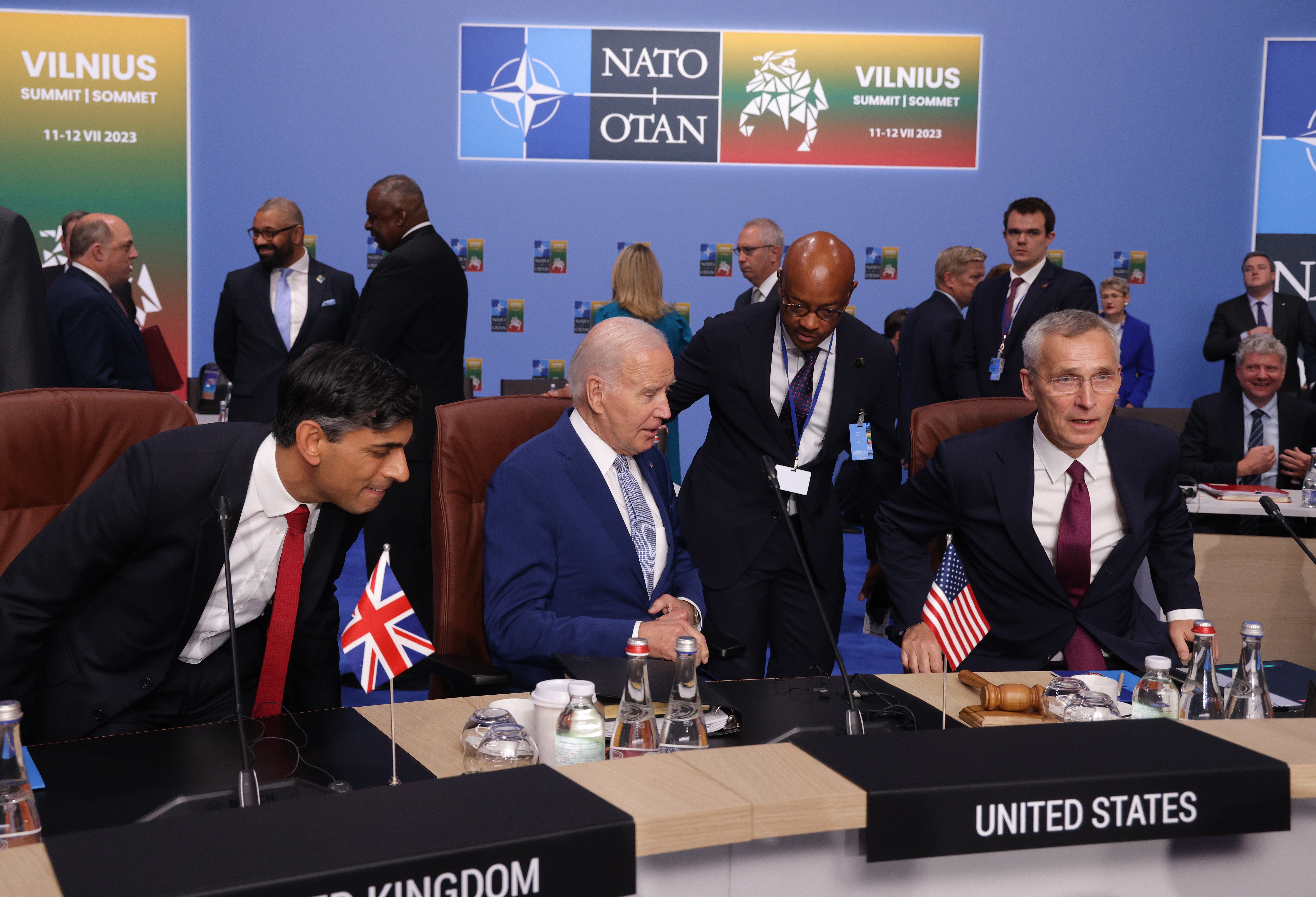Why the Nato summit in Vilnius could prove critical
Strength and resolve would be a tremendous gesture towards the Ukrainian people, writes the former president of Georgia, Mikheil Saakashvili. Hesitation will only lead to further escalation of conflict


This week’s Nato summit in Vilnius marks a critical point in the organisation’s history.
Top of the agenda for the 31 member nations will be whether to offer fast-track membership to Ukraine. While eventual membership might seem inevitable, there’s also a nagging sense that we’ve been here before.
In early 2008, in my second term as president of Georgia, I was standing outside the Oval Office for what I believed would be a final membership blessing from George Bush ahead of a summit of Nato leaders in Bucharest, Romania.
Suddenly, the German chancellor Angela Merkel was phoning me from Berlin. She was direct and to the point, telling me that no matter what Bush promised, Germany would block a Membership Action Plan (MAP) for both Georgia and Ukraine. It felt like a cold shower.
President Bush did not seem to be fazed when we spoke a few moments later. “Let me take care of Angela,” he said, sounding like he wasn’t taking her very seriously at all. In a way, his optimism was understandable. There had never been a case when any European power had ever challenged or vetoed an American decision to nominate new members. So we went to Bucharest with high hopes.
As it turned out, President Bush had underestimated Chancellor Merkel. Germany had put together a coalition of Western European states, including France who opposed offering a MAP.
The argument presented by those coalition members suggested decoupling Georgia and Ukraine since Georgia had “unresolved territorial conflicts”. This of course was flatly rejected by the United States.
America’s response to this unusual argument was that if one would create such a precedent for denial of membership, Ukraine or any other future candidate might invite those territorial issues rather quickly, as this would be the most effective way of bumping them off their chosen path.
The negotiations dragged on the whole night until finally the participants came up with a formula, which was widely perceived as a defeat for Georgia, Ukraine and the United States, and a victory for Vladimir Putin, who at the dinner in Bucharest, among other things, said that Ukraine was not a real state but just a territory.
The agreed formula de facto denied the MAP to the two aspirant countries and instead proclaimed that “Ukraine and Georgia will become members of Nato.” Angela Merkel herself was an author of this wording.
Worse still was the decision of the summit to revisit the issue at the December ministerial of Nato, which basically indicated to Moscow the exact time frame in which they had to act. And act they did.
After the disastrous signals of weakness from the Bucharest summit, Putin felt empowered and aggressively moved towards the implementation phase of his war plans. Under the pretext of protecting South Ossetians from genocide (“Denazification” had not yet been invented!), Russia began a full-scale invasion of Georgia in August, with Putin openly announcing his intention to hang me.
Hundreds of people died and tens of thousand families lost their homes. This is what happens when you try to appease Moscow. Today, more than a decade on, Ukraine has risen to meet fresh Russian aggression head-on. Despite huge loss of life, the Ukrainian people and their government steadfastly believe a final victory is possible.
It is our duty to extend all available resources leading to their ultimate victory over Russia and liberation of all occupied Ukrainian territories, including Crimea. Ukraine has amply earnt the right to be a full-fledged member of Nato, and it is vital that Nato not leave any space for the slightest perception of weakness. Hesitation will only lead to further escalation of conflict. Strength and resolve would be a tremendous gesture towards the Ukrainian people in their just war against Putin.
It saddens me that my current incarceration means I cannot currently play a more active role in assisting Ukraine at the negotiating table. Despite my situation, I have been greatly encouraged by the warm support I have received from President Zelensky in recent days, and I look forward to a time when, as a free man, I can play my part once again.
Mikheil Saakashvili was president of Georgia between 2004 and 2013. Chairman of the executive committee of Ukraine’s National Reform Council, he is currently serving a six-year prison sentence in Georgia on abuse of power charges since 2021, which he and his supporters say are politically motivated






Join our commenting forum
Join thought-provoking conversations, follow other Independent readers and see their replies
Comments